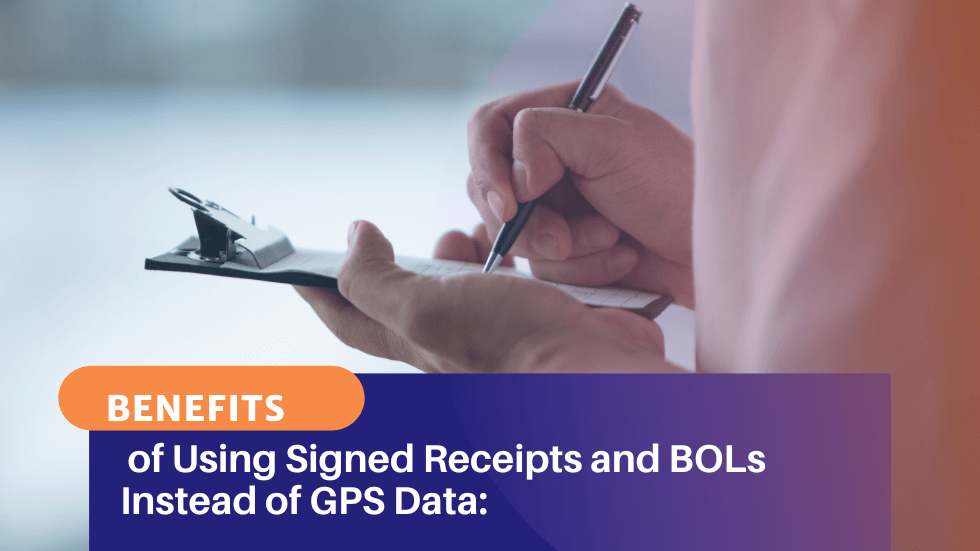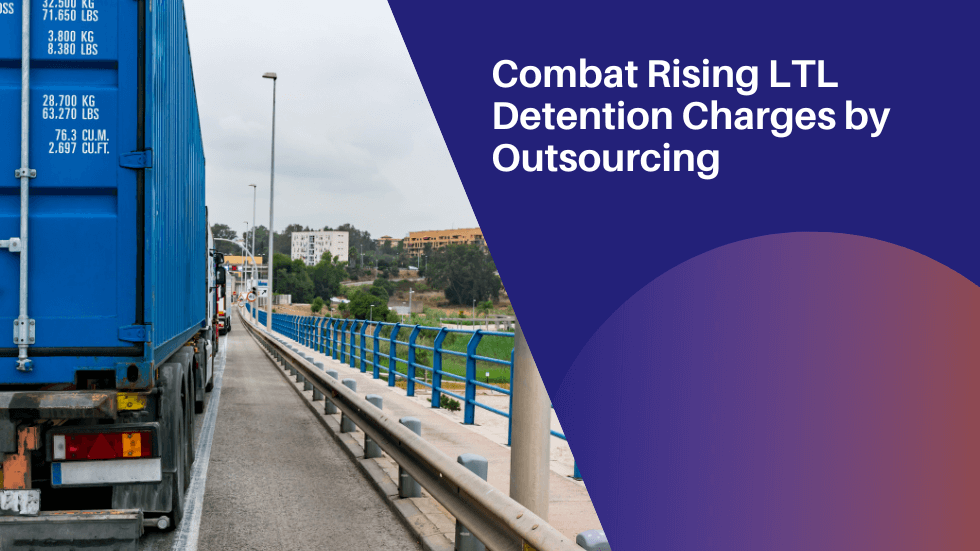2 Benefits of Using Signed Receipts or BOLs to Combat Rising LTL Detention Charges
Posted on January 26, 2023
Written by Mickey Powers
In recent years, rising LTL detention charges have affected businesses worldwide. One of the reasons being that less-than-truckload (LTL) carriers have increasingly relied on GPS technology to track the movements and activities of their drivers, including, more recently, the use of detention time.
Detention time refers to the time a driver spends waiting to load or unload their truck at a customer’s facility.
Some LTL carriers have begun more aggressively charging their customers for detention time, citing the cost of the driver’s time and the use of the truck while it is not moving.
What Role Does GPS Technology Have in Rising LTL Detention Charges?

While GPS technology can be a useful tool for tracking and managing logistics, it has also raised concerns about the accuracy and fairness of detention time charges.
There have been instances where GPS tracking systems have malfunctioned, leading to incorrect detention time charges.
In addition, contrary to what some carriers may declare, the use of GPS data to determine detention time can actually be subjective and open to interpretation.
For example, a driver may be waiting at a customer’s facility for an extended period of time due to issues beyond the customer’s control, such as a malfunction of the carrier’s equipment or delays caused by the carrier themselves (no appointment scheduled, when clearly noted it was required, so, in turn, they had to wait). Not to mention the possibility of engaging in personal activities.
However, the LTL carrier may still charge the customer for this detention time based on the GPS data. Furthermore, some LTL carriers have been criticized for using detention time charges as a way to generate additional revenue rather than as a genuine cost recovery measure.
In some cases, this has led to tensions between LTL carriers and their customers, as well as disputes over the amount of detention time charges.
One alternative to relying on GPS data for detention time charges is to return to the use of signed delivery receipts and BOLS (whether paper or electronic).
With this approach, the driver and the customer’s representative would both sign a receipt or BOL upon the completion of the delivery or pick-up.
These documentation methods would include the actual time of arrival and departure and having any detention time notated, if any.
Read: Transition from Manual to Electronic Bill of Lading Delivers Great Benefits
Benefits of Using Signed Receipts and BOLs Instead of GPS Data

Using signed delivery receipts and BOLs to record detention time has several advantages over relying on GPS data.
#1 Benefit of Signed Receipts and BOLs Instead of GPS Data: Accurate Data
First and foremost, it provides a more accurate and objective record of detention time.

The driver and the customer’s representative can both confirm the actual time of arrival and departure, as well as the waiting time.
This eliminates the potential for discrepancies or subjectivity that can arise with GPS data and a freight invoice different from what was expected.
#2 Benefit of Signed Receipts and BOLs Instead of GPS Data: Transparency

In addition, using a signed and notated document can help build trust and transparency between LTL carriers and their customers.
By providing a clear and verifiable record of the detention time, LTL carriers can demonstrate that they are charging for it fairly and transparently.
This can help to reduce tensions and disputes over detention time charges, which are typically identified when their customer receives an invoice in a higher amount than quoted.
Read: Cost Visibility – Information is King
Let’s Recap

Overall, using a notated document (whether paper or electronic) to record detention time is a more reliable and transparent approach than relying on GPS data.
LTL carriers should consider bringing back this practice to improve the accuracy and fairness of detention time charges and build trust with their customers.
On the other hand, customers should be aware of the potential for detention time charges and be prepared to negotiate or challenge them if necessary.
Combat Rising LTL Detention Charges by Outsourcing

Having a third-party auditor can be beneficial because they can identify errors or discrepancies in detention time and other charges based on the same criteria you use internally today.
A freight bill audit service provider can help ensure that you are only being charged for the time that is rightfully owed to the carrier, and that all other charges on the freight bill are accurate.
In addition to identifying accessorial errors that are incorrectly billed, they can also validate your invoice based on your LTL pricing agreements.
Overall, a freight bill audit and payment company can help reduce costs and ensure that your company pays fair and accurate shipping service charges.
Read: The Right 3PL Bridges Gap Between Shippers and Carriers
Simplify and Streamline Your Freight Bill Processes

With over 40 years of experience, Broussard Logistics is familiar with your pain points and challenges.
We also know what it takes to help you find long-term solutions for all your needs.
We work with clients across various industries, including manufacturing, eCommerce, distribution, and energy.
Our experts know freight bill audit, payment & reporting inside and out, and we do the heavy lifting, so you don’t have to.
Feel free to contact our Broussard Logistics team to help you mitigate overspending with LTL carriers.